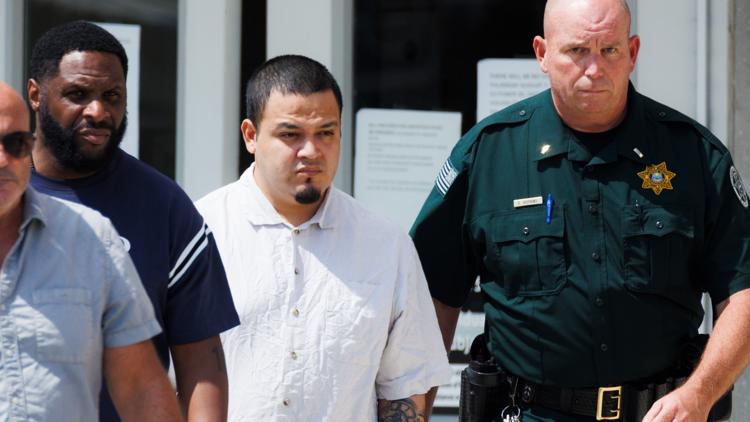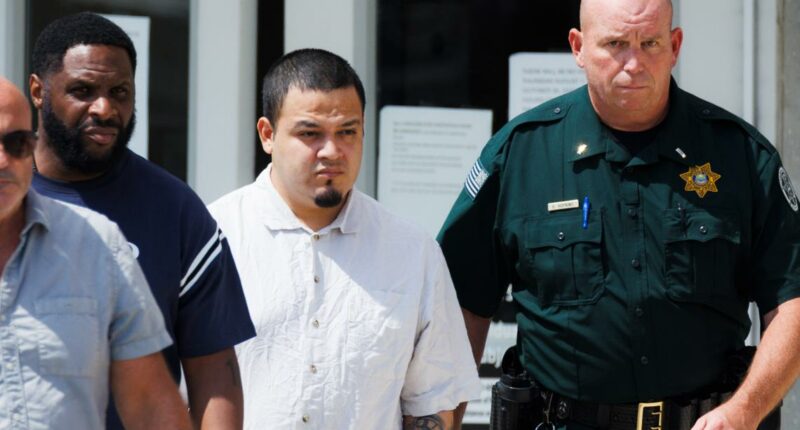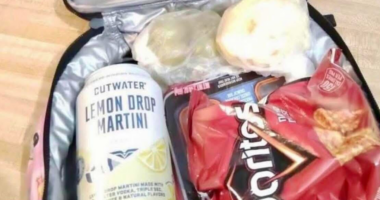Share this @internewscast.com

Immigration officials have indicated intentions to deport Abrego Garcia to Uganda, following a newly established arrangement for accepting certain deportees from the U.S.
BALTIMORE — Kilmar Abrego Garcia voluntarily turned himself in to U.S. immigration authorities in Baltimore on Monday, amidst efforts by the Trump administration to deport him to Uganda. This African nation has a history of human rights issues and is home to a language foreign to him.
The Maryland-based construction worker became emblematic of President Donald Trump’s stringent immigration stance after his wrongful deportation in March to a notorious prison in El Salvador, his country of origin. Upon his return to the U.S. in June, he faced human smuggling charges, claims his lawyers argue are both absurd and retaliatory.
The Trump administration has expressed intentions to remove Abrego Garcia well in advance of his scheduled trial in Tennessee, asserting that the 30-year-old family man poses a community risk and has ties to the MS-13 gang. He refutes these gang affiliations, has entered a not guilty plea regarding the smuggling charges, and has petitioned for case dismissal, alleging prosecutorial vindictiveness.
This announced check-in at a Baltimore Immigration and Customs Enforcement office occurs shortly after the 30-year-old was released from a Tennessee facility where he had been held since June, post-return from the erroneous deportation to El Salvador.
Immigration authorities have expressed their plans to deport Abrego Garcia to Uganda, pursuant to a recent agreement accepting certain deportees. This follows his rejection of an offer involving relocation to Costa Rica in exchange for admitting guilt to human smuggling allegations.
According to his defense attorneys, the government has given Abrego Garcia until first thing Monday to accept the plea deal and deportation to Costa Rica, or “that offer will be off the table forever.”
Abrego Garcia’s attorneys have declined to say if he’s still considering the deal.
On Friday, Abrego Garcia returned to his family in Maryland. Video released by advocates of the reunion showed a room decorated with streamers, flowers and signs. He embraced loved ones and thanked them “for everything.”
Filings in federal court show the Costa Rican government saying Abrego Garcia would be welcomed as a legal immigrant and wouldn’t face detention.
In a statement, Justice Department spokesperson Chad Gilmartin said the criminal charges underscore how Abrego Garcia presents a “clear danger” and that he can either plead guilty or stand trial.
“Either way, we will hold Abrego Garcia accountable and protect the American people,” Gilmartin said.
Abrego Garcia’s case became a flash point in President Donald Trump’s immigration agenda after he was mistakenly deported to El Salvador in March, despite a judge’s earlier determination that he faced a “well-founded fear” of violence there. Facing a court order, the Trump administration brought him back to the United States in June, only to detain him on human smuggling charges.
He pleaded not guilty and asked the judge to dismiss the case, claiming that it is an attempt to punish him for challenging his deportation to El Salvador. The Saturday filing came as a supplement to that motion to dismiss, stating that the threat to deport him to Uganda is more proof that the prosecution is vindictive.
The smuggling charges stem from a 2022 traffic stop in Tennessee for speeding. There were nine passengers in the car, and officers discussed among themselves their suspicions of smuggling. Abrego Garcia was allowed to continue driving with only a warning.
Abrego Garcia has an American wife and children and has lived in Maryland for years. Although he was deemed eligible for pretrial release last month, he remained in jail at the request of his attorneys, who feared the Republican administration could try to immediately deport him again if he were freed.
A recent ruling in a separate case in Maryland required ICE to provide 72 hours’ notice before initiating deportation proceedings — time to allow a prospective deportee to mount a defense. An email from ICE sent to attorneys at 4:01 p.m. on Friday refers to that decision.
“Please let this email serve as notice that DHS may remove your client, Kilmar Armando Abrego Garcia, to Uganda no earlier than 72 hours from now (absent weekends),” it states. Uganda recently agreed to take deportees from the U.S., provided they do not have criminal records and are not unaccompanied minors.
Federal officials have argued that Abrego Garcia can be deported because he came to the U.S. illegally and because a U.S. immigration judge deemed him eligible for expulsion in 2019, just not to his native El Salvador.
Copyright 2025 Associated Press. All rights reserved. This material may not be published, broadcast, rewritten, or redistributed.

















